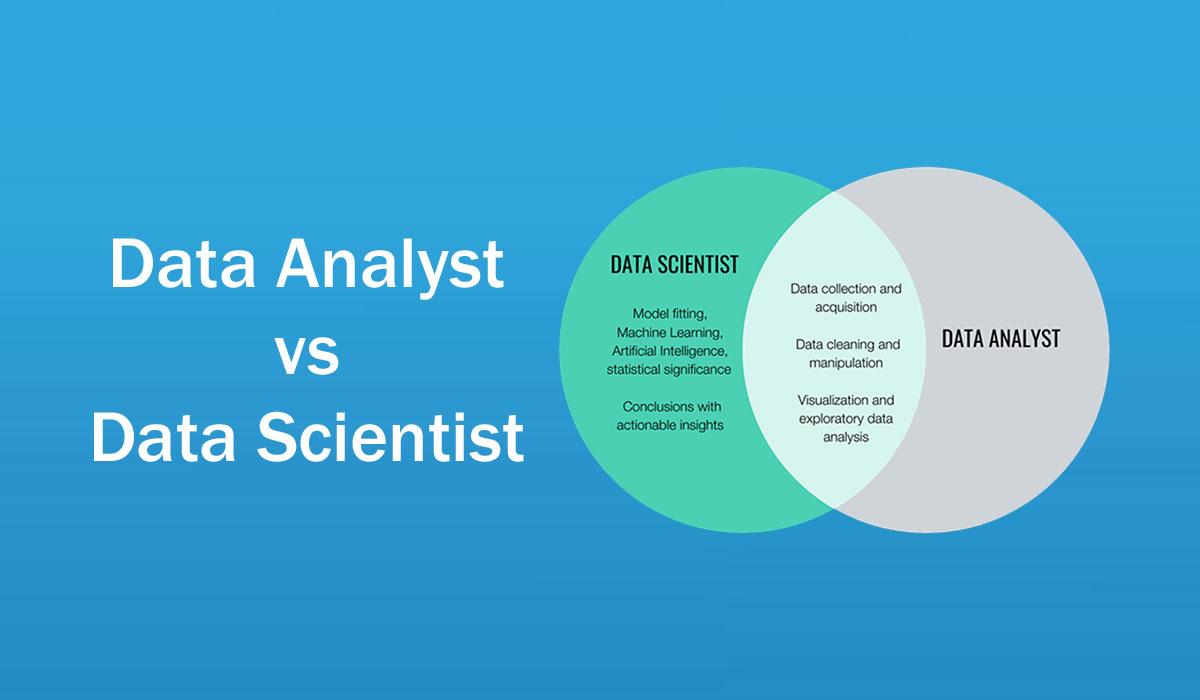
today we’re going to compare the roles of a Data Analyst and a Data Scientist. We’ll discuss:
- The differences between these roles
- The skills required for both fields
- Expected salaries
- The kind of work involved
- What companies expect from these professionals
Differences Between Data Analyst and Data Scientist Roles
Example to Understand the Roles:
Let’s take the example of a company like Blinkit (a quick delivery service).
- Data Analyst’s Role:
If Blinkit’s stakeholders want to know:- Which products are selling the most?
- During which seasons do sales peak?
- Where more delivery partners are required because of high demand?
- What inventory needs to be stocked more or is being underutilized?
- Data Scientist’s Role:
On the other hand, if stakeholders want to:- Predict future trends, like which products are likely to sell during Christmas or Diwali.
- Forecast demand, ensuring the stock is ready beforehand.
- Provide personalized recommendations (e.g., when a customer buys milk, the app suggests bread).
Primary Responsibilities
- Data Analyst Responsibilities:
- Gathering data from different sources
- Cleaning and organizing data
- Analyzing data
- Creating and maintaining dashboards
- Generating reports for stakeholders
- Data Scientist Responsibilities:
- Building predictive models
- Performing trend analysis and forecasting
- Providing actionable insights based on advanced algorithms
- Conducting prescriptive analysis
Skills Required
- Data Analyst Skills:
- Excel (advanced level)
- SQL
- Business intelligence tools like Power BI or Tableau
- Basic programming in Python
- Knowledge of basic statistics
- Data Scientist Skills:
- Advanced programming skills in Python or R
- Strong knowledge of SQL
- Expertise in cloud computing is a plus
- Advanced knowledge of math and statistics
- Experience with machine learning and predictive modeling
Educational Background
- For Data Analysts:
- A bachelor’s degree in any field can work.
- However, a degree in Computer Science, IT, or Statistics is more beneficial.
- For Data Scientists:
- A master’s degree in Data Science, Computer Science, or Statistics is often preferred.
- This gives you an edge in terms of knowledge and career opportunities.
Career Guidance
If you’re interested in learning the tools and technologies required for these roles, consider joining WS Cube Tech’s Premium Data Analytics Mentorship Program. It includes:
- Training on tools like Excel, SQL, Power BI, Tableau, Python, and more.
- Over 6 projects, 12 case studies, and a capstone project.
- Interview preparation and assistance with landing your first job in this field.
You can check out the link in the description to get started.
Final Thoughts
If you want to work with historical data, focus on creating insights and dashboards, and prefer a less math-intensive role, then becoming a Data Analyst is a great choice.
However, if you enjoy problem-solving, predictive modeling, and are comfortable with advanced math and programming, Data Science could be the ideal path for you.

